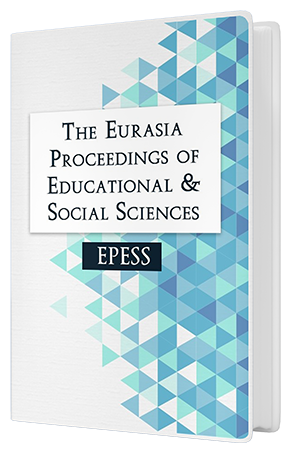EFFECTS OF COURSE DELIVERY MODE ON STUDENTS SELF-REGULATION SKILLS
Keywords:
Flipped learning, blended learning, self-regulationAbstract
With the development of internet and Learning Management Systems, owing to their flexibility in delivery and instant access features, more and more instructors have started to blend or flip their courses by using online learning technologies like videos, online homework, and e-exams. In online learning applications, learners are encouraged to acquire and build their knowledge through interaction with a wide range of resources. For students to gain experience, it is important that they get hands-on practice as well as use time effectively during class periods in courses like Computer Programming. Students equipped with self-regulation skills perform better in choosing learning methods appropriate for their learning pace, completing learning tasks, and achieving learning objectives. Furthermore, students with good self-regulation skills can improve their learning both in blended and flipped courses. Building on this point, this study aims to investigate differences between students’ self-regulation skills in a blended and a flipped course. Based on online self-regulatory perspective, five properties were chosen to be notably considerable for blended and flipped courses: perceived self-efficacy, perceived anxiety, interactivity in the online learning environment, perceived satisfaction, and perceived usefulness. The participants were 192 sophomore students enrolling at Computer Programming Course in a vocational college during fall semester of 2015-2016 Academic Year. Data were collected via an online questionnaire. Independent samples t-test was conducted to examine differences in self-regulation skills of students in flipped and blended courses. Flipped course participants reported significantly higher levels of perceived anxiety with online learning environments while blended course participants reported significantly higher levels of perceived satisfaction, perceived usefulness and self-regulation. In this sense, it is assumed that flexible environment of flipped classrooms lead to higher anxiety levels and urges students to seek more instructor guidance.Downloads
Published
Issue
Section
License
Copyright (c) 2016 The Eurasia Proceedings of Educational and Social Sciences

This work is licensed under a Creative Commons Attribution-NonCommercial-ShareAlike 4.0 International License.
The articles may be used for research, teaching, and private study purposes. Any substantial or systematic reproduction, redistribution, reselling, loan, sub-licensing, systematic supply, or distribution in any form to anyone is expressly forbidden. Authors alone are responsible for the contents of their articles. The journal owns the copyright of the articles. The publisher shall not be liable for any loss, actions, claims, proceedings, demand, or costs or damages whatsoever or howsoever caused arising directly or indirectly in connection with or arising out of the use of the research material. All authors are requested to disclose any actual or potential conflict of interest including any financial, personal or other relationships with other people or organizations regarding the submitted work.




